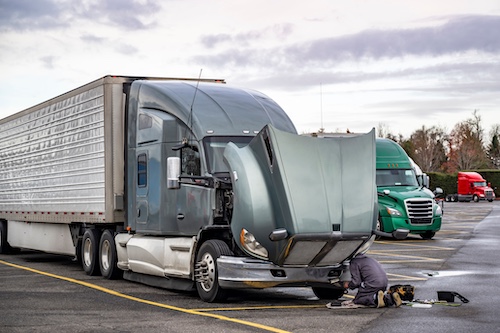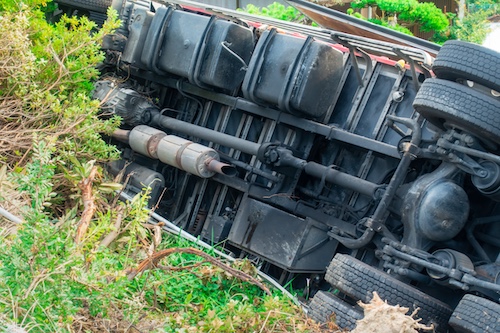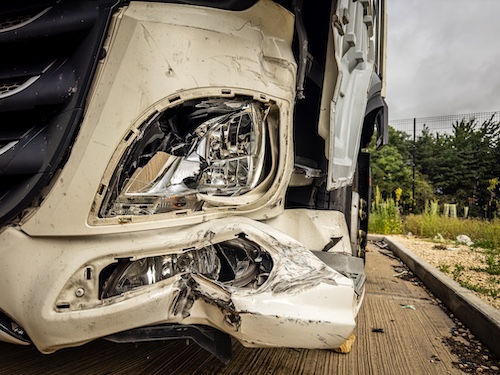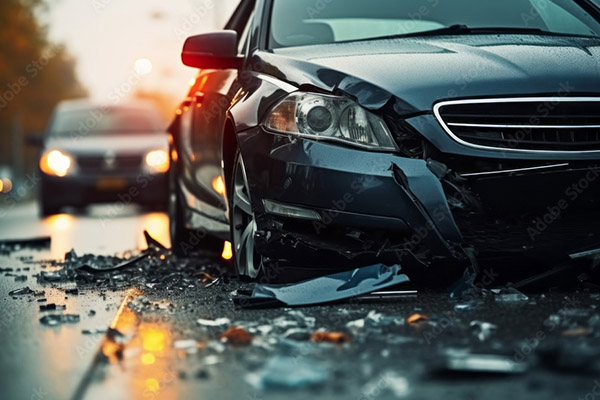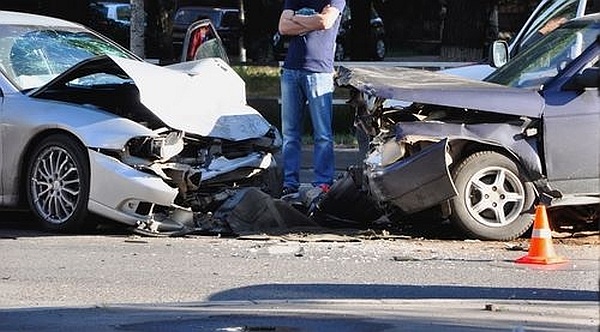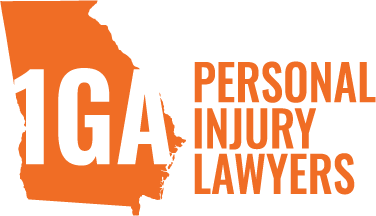Prove Liability in a Georgia Truck Accident Case
At 1Georgia Personal Injury Lawyers, we are dedicated to protecting the rights of injured victims across Georgia. Our firm focuses on personal injury cases, including truck accidents, car accidents, and premises liability claims. We build strong cases by gathering evidence, working with expert witnesses, and proving negligence to hold responsible parties accountable. Our mission is to help clients recover damages for medical expenses, lost income, and emotional distress while guiding them through every step of the legal process with clear and professional representation.
Proving liability in a truck accident case is the key to recovering damages in a personal injury lawsuit. Georgia law requires the injured party to establish negligence by presenting relevant evidence such as accident reports, medical records, and eyewitness testimony. Truck accident cases often involve multiple responsible parties, from drivers to trucking companies, which makes gathering compelling evidence and expert testimony a critical part of the process.
With the support of an experienced Alpharetta truck accident lawyer, injured victims can secure compensation for medical expenses, lost wages, and emotional distress.
Legal Framework for Proving Liability in Georgia
Understanding the legal framework is a critical part of how to prove liability in a truck accident case. Georgia law sets out specific rules for how injured parties can establish liability and pursue fair compensation.
Duty of Care
Every driver on Georgia roads has a legal obligation to follow traffic laws and operate their vehicle in a safe manner. Under O.C.G.A. § 51-1-2, individuals are required to use ordinary care to avoid harming others. In truck accident cases, this duty of care extends to truck drivers, trucking companies, and in some cases, other responsible parties.
Breach of Duty
To establish liability, the plaintiff must show that the defendant failed to act with reasonable care. A breach can occur when a truck driver violates traffic laws, drives while fatigued, or ignores safety regulations. This failure to act as a reasonable person would in the same situation is the foundation of proving negligence.
Causation
It is not enough to show that a defendant’s actions violated a duty. The plaintiff must also prove that the defendant’s breach directly caused the accident and the plaintiff’s injury. Accident reports, eyewitness testimony, and expert witnesses can serve as compelling evidence to connect the breach of duty to the collision.
Damages
The final step is showing measurable harm. The injured party must provide evidence of medical expenses, lost wages, and other tangible financial losses. Georgia law also allows recovery for non-economic damages such as emotional distress and ongoing medical treatment. Without proof of damages, a personal injury lawsuit cannot succeed even if negligence is established.
Key Elements in Establishing Liability
To prove liability in a truck accident case, an injured party must demonstrate specific legal elements that show fault and justify compensation. These elements are the foundation of every personal injury lawsuit in Georgia.
Duty of Care
The first step is showing that the defendant owed a legal obligation to act with reasonable care. In truck accident cases, this usually means following traffic laws, driving safely, and avoiding conduct that puts others at risk.
Breach of Duty
Once duty is established, the plaintiff must prove the defendant failed to meet that duty. A breach occurs when the defendant’s actions violated established safety rules or industry standards. Examples include distracted driving, overloading cargo, or skipping required inspections.
Causation
The plaintiff must connect the breach of duty to the accident. It must be clear that the defendant’s actions led directly to the plaintiff’s injury. Accident reports, witness statements, and expert testimony from accident reconstruction experts often provide necessary evidence of causation.
Damages
Finally, the plaintiff must show damages that resulted from the accident. This includes medical expenses, lost income, and future medical care. Emotional distress and pain are also considered in personal injury claims. Without proof of damages, even a clear breach of duty cannot secure compensation.
Gathering and Preserving Evidence
Strong evidence is a critical part of any effort to prove liability in a truck accident case. The injured party must preserve and present relevant evidence that supports each element of the personal injury claim.
Accident Reports and Incident Records
Police accident reports provide direct evidence of what occurred at the crash scene. These documents often include witness statements, traffic law violations, and officer observations. Incident reports from businesses or property owners may also be important when the accident occurred on private property.
Medical Records and Treatment Documentation
Medical professionals and healthcare providers play a crucial role in determining the extent of injuries. Medical records, ongoing medical treatment, and bills document the physical impact and financial burden of the accident. These records are also necessary evidence of future medical care needs.
Witness Testimony and Expert Analysis
Eyewitness testimony offers important evidence about how the collision happened. Expert witnesses, including accident reconstruction experts, can analyze physical evidence and provide testimony that links the defendant’s actions to the plaintiff’s injury. Their professional insights are often a critical part of establishing liability.
Preserving Tangible Evidence
Photos of the accident scene, vehicle damage, and hazardous conditions such as a wet floor or unsafe roadway can all serve as compelling evidence. Preserving this information immediately after the accident helps prevent the loss of key elements that may prove negligence. A legal team ensures important evidence is collected, preserved, and presented in a personal injury lawsuit.
Common Scenarios of Truck Accident Liability
Truck accidents often involve multiple negligent parties and different types of legal responsibility. Identifying the source of the breach of duty is a critical part of proving liability and building a strong personal injury case.
Driver Negligence
Truck drivers have a duty to follow traffic laws and operate their vehicles in a safe manner. Liability can arise when a driver is fatigued, distracted, impaired, or driving aggressively. Accident reports, witness statements, and physical evidence often reveal these violations of reasonable care.
Trucking Company Responsibility
Trucking companies can be held liable when they fail to enforce safety standards. This may include negligent hiring, lack of driver training, or poor vehicle maintenance. If a company allows a truck on the road that violates safety regulations, the defendant’s breach can extend beyond the driver to the employer.
Cargo Loading and Third Parties
Unsafe cargo loading can create dangerous conditions that lead directly to an accident. Liability may fall on third parties responsible for loading or securing freight. Expert witnesses and accident reconstruction experts often play a crucial role in showing how improper loading contributed to a collision.
Property Owners and Hazardous Conditions
When a truck accident occurs on private property, liability may involve a property owner or business owner. Failing to maintain a safe property, such as leaving a hazardous condition or a wet floor unaddressed, can result in a premises liability case. In these situations, proving negligence involves showing that the property owner failed to act with reasonable care.
Compensation After Proving Liability
Once liability is established, the injured party may seek compensation for both economic and non-economic damages. The type and amount of recovery depend on the evidence presented in the personal injury lawsuit.
Economic Damages
Economic damages cover tangible financial losses caused by the accident. This includes medical bills, lost wages, lost income, and the cost of future medical care. Providing evidence through medical records, employment documents, and expert testimony is a critical part of securing compensation for these damages.
Non-Economic Damages
Non-economic damages address the personal impact of the injury. Emotional distress, pain and suffering, and loss of enjoyment of life are considered under this category. Testimony from medical professionals and family members can support the injured party’s claim for fair compensation.
Punitive Damages
In cases where the defendant’s actions violated safety laws in a reckless or intentional way, punitive damages may apply. Under state law, punitive damages are designed to punish negligent parties and deter similar conduct in the future. These damages are awarded in addition to economic and non-economic damages when the defendant’s negligence rises to a severe level.
Contact an Experienced Alpharetta Truck Accident Lawyer!
If you or a family member has been injured in a truck accident, our team at 1Georgia Personal Injury Lawyers is ready to help you prove liability and fight for fair compensation. We understand the evidence needed to build a strong personal injury claim and the legal strategies required to hold negligent parties accountable.
Contact us at (800) 800-8000 for a free claim review today!
